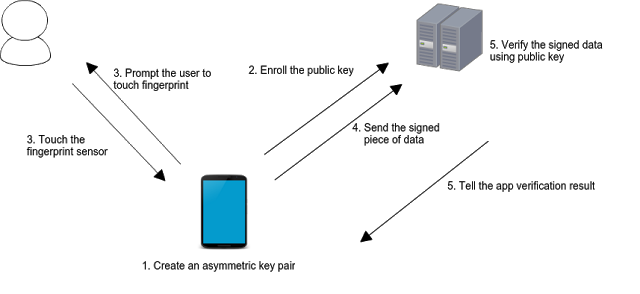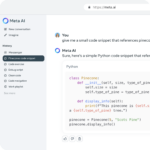
Android 6.0 Marshmallow is publicly available to users, and Android’s developers have been adding new features for developers along the way. This week, they are releasing Asymmetric Fingerprint Dialog, a new sample demonstrating how to securely integrate with compatible fingerprint readers in a client/server environment, according to its blog.
The Android Fingerprint API protects users’ privacy by keeping their fingerprint features within the hardware on the device, guarding it from “malicious actors” and untrusted applications.
According to the Android developers blog, when a user activates his or her fingerprint reader, they’re unlocking a hardware-backed cryptographic vault. Developers can choose what material is stored in this vault, depending on what they need for an application.
Google is turning to an AI machine to answer search queries
Google has an artificial intelligence system, nicknamed RankBrain, that interprets millions of searches by Google’s users, according to BloombergBusiness.
RankBrain uses artificial intelligence to embed written language into mathematical information that the computer can understand. If RankBrain sees something it doesn’t understand, it will guess based on similar words and phrases, making search queries more effective, according to Bloomberg. A large fraction of searches have been answered by the system, said the report.
MapR to provide free Apache Spark training
MapR Technologies has announced the availability of its first free Apache Spark course. The class will be a part of the Hadoop On-Demand Training Program, and it will provide developers with the essentials they need to build Spark-based apps on Hadoop.
“The response to our free Hadoop On-Demand Training has been tremendous,” said Dave Jespersen, vice president of worldwide services at MapR Technologies. “Based on customer demand, we’ve now added Spark to our selection of comprehensive courses. This training complements MapR support of the entire Apache Spark stack, giving developers and enterprise architects the most choice, as well as production-proven reliability and performance for Hadoop and Spark Big Data applications.”





